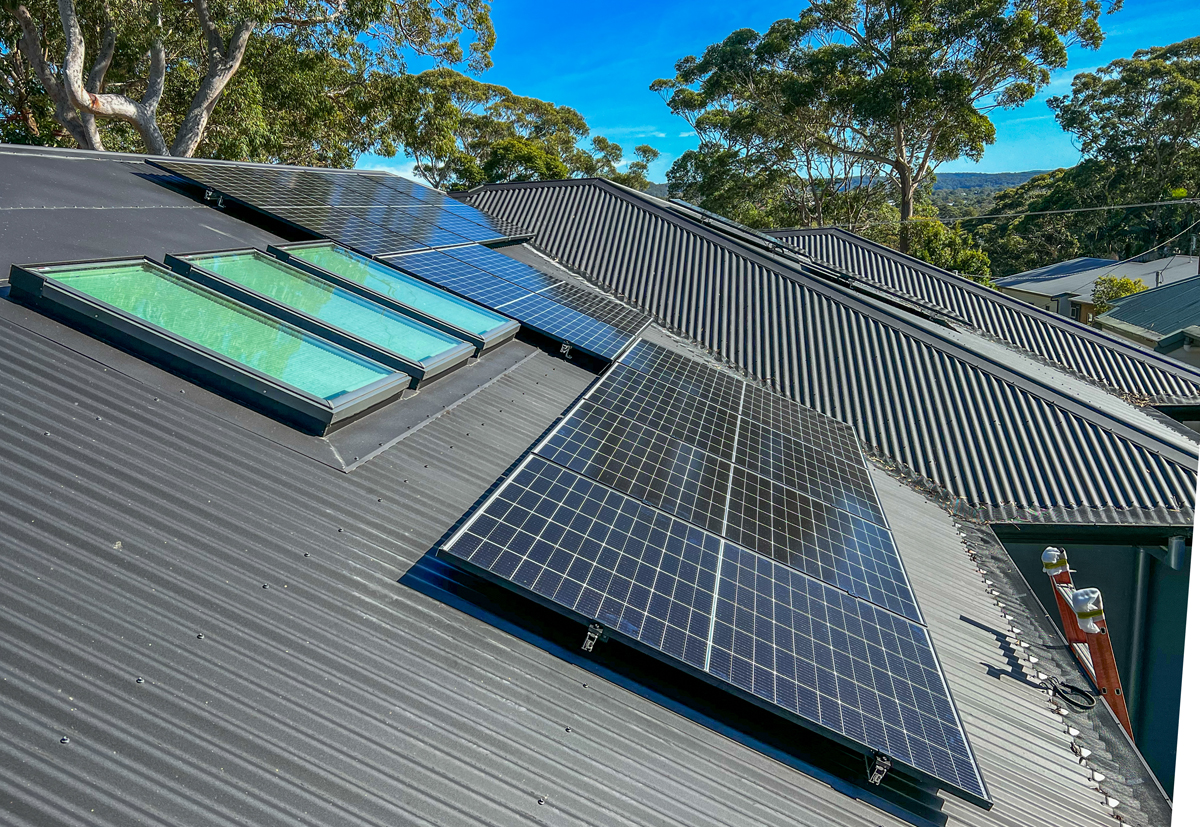How to meet your energy needs with solar panels for house in Newcastle?
Solar power has become a highly popular and accessible choice for homeowners looking to minimize their carbon footprint and save the money on the electricity costs. By considering the numerous benefits all homeowners can make a well-informed decision about transitioning to the solar power and how it can positively affect their home and environment.

It's time to take action and make your home more energy-efficient by harnessing the sun's power. By installing solar panels for houses in Newcastle, you're helping yourself and contributing to a cleaner and more sustainable future for us all.
Types of individual solar systems for home
- On-Grid
When a solar system is installed at your house, it is said to be on-grid because it is linked to the grid. You can use the net metering feature there. In other words, during the day, the energy generated by solar panels will power your home first, and any extra will be sent to the grid. For others to utilise it. You use the grid to get electricity at night since the solar panels aren't producing any. The electricity you transmit to the grid will be paid for, and you will be charged for the electricity you use from the grid. Your electricity bill will be the net of the two. We call this net metering.
- Off-Grid
The second option is an off-grid system. Instead of connecting your solar system to the grid, connect it to a battery. When there is no solar energy at night, the energy stored in the battery is used to meet electricity requirements. The problem is that batteries are frequently costly.
- Which is better? On-grid or Off-grid
The problem with the off-grid systems is that the batteries are often expensive. That is why an on-grid solar system is more advantageous.
Examining your home's energy needs
Before deciding about your residence's best solar power system, you need to examine your energy needs. There are a few primary steps you can take to do this:
Conduct a home energy audit
A thorough energy audit assesses your home's power usage. An auditor will assess your home's insulation, doors, windows, and appliances to identify the areas where energy is wasted. They will also provide a detailed assessment with the recommendations for minimizing your energy consumption.
Conduct a site assessment
A site assessment is a complete evaluation of your home's solar potential. An assessor will evaluate your home's location, orientation, and shading to find out how much sunlight your property receives. They will also consider the local weather patterns and the potential shading from nearby trees and buildings. This will help you choose the size and type of solar power system you need.
Understanding the solar power systems
There are different types of solar power systems and each have their own advantages and disadvantages. For instance, grid-tied solar power systems are connected to the electrical grid, which permits you to sell the excess energy back to the utility systems. On the other hand, off-grid systems are not connected to the grid. They will require a battery storage system for the electricity produced by the solar panels.
Understanding the stark differences between these two systems will help you decide which type of system is best for your home. By assessing your energy needs, you'll better understand how much electricity you'll require to generate with your solar power system and what size and type of solar system you'll need to meet those needs. This will help ensure your solar power system is cost-effective and efficient.
Are solar panels right for your home?
The decision to switch to the solar energy offers both environmental and financial benefits. However, evaluating if your home is a good fit is crucial.
The ideal conditions for solar panels include:
- living in a climate with ample sunlight
- having a clear, unobstructed view of the Southern sky
- and residing in a state that offers solar tax incentives
These factors make solar panel installation a smart financial move, especially if you're dealing with high energy bills unwanted to become energy-independent.
Conclusion
Harnessing the sun's power is an intelligent way to make your home more energy-efficient and decrease your dependence on fossil fuels. Transitioning to solar power is an investment that pays off in the long run. The savings on your monthly electricity bills, higher home value, lower maintenance cost and the ability to use very clean and renewable energy all contribute to making a robust solar power system a worthwhile investment for your home.

